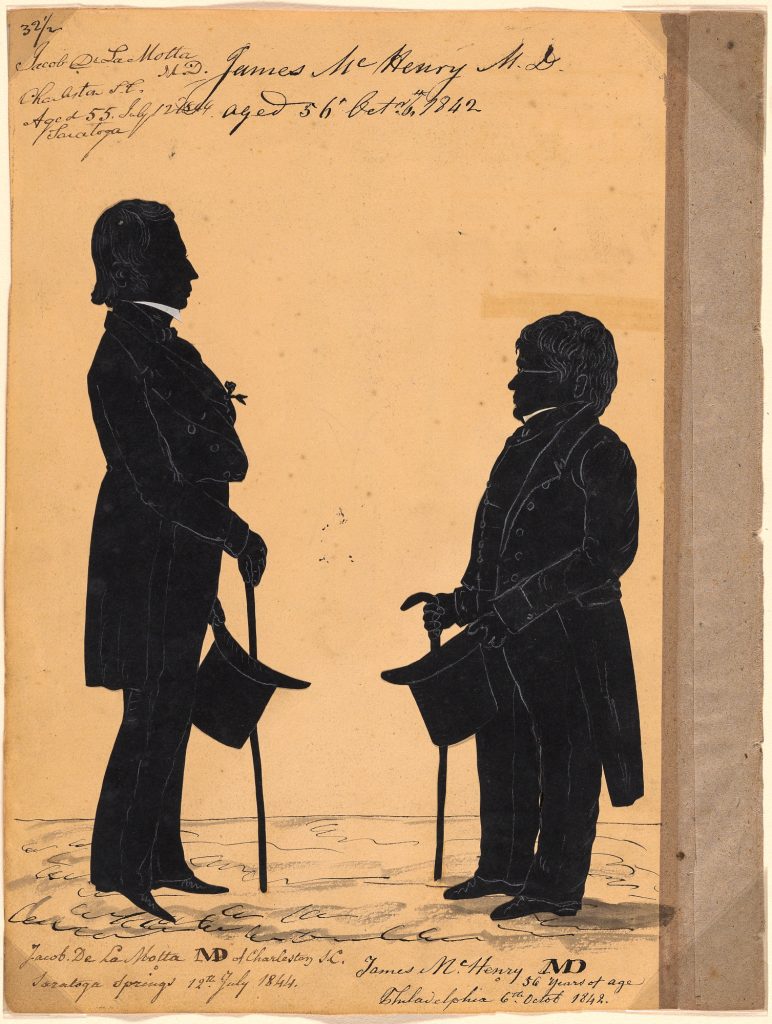Born in Savannah, Georgia, in 1789, Jacob de la Motta was the eldest of Judith and Emmanuel de la Motta’s eight children. His father was Sephardic, originally from the island of St. Croix; his mother was descended from Danish Jews. In 1810, at age twenty-one, he received a medical degree from the University of Pennsylvania and began practicing medicine in Charleston. De la Motta volunteered his services at the outbreak of the War of 1812, commissioned a surgeon in the US Army.
After the war he practiced in New York City, before returning to Savannah, in 1818, where he conducted studies on yellow fever, and then finally back to Charleston in 1823, where he was to remain and become known as the city’s leading physician. He served as secretary of the Medical Society of South Carolina for ten years, as the state’s assistant commissioner of health, and as a trustee of the Medical College of South Carolina, founded in 1823. Additionally, he established a pharmacy called the Apothecaries Hall and contributed to the revision of the Pharmacopoeia of the United States of America.
In 1830 he married Charlotte Lazarus, daughter of Marks and Richa Lazarus. They had four children.
Throughout his life, de la Motta was active in freemasonry and in 1844 achieved the highest rank, as grand commander of the Supreme Council. No less active in politics, de la Motta ran for alderman during his time in Savannah, and in Charleston, during the Nullification Crisis in 1832, he was active in the Union and States Rights Party, which was firmly opposed to the nullifiers. In 1834 he ran for the House of Representatives but lost to a nullification candidate. Active in the Whig Party in the aftermath of the Nullification Crisis—and a vocal advocate of William Henry Harrison—de la Motta was rewarded with appointment as receiver general for South Carolina by the new president.
Active in congregation Beth Elohim, de la Motta joined the contingent that split off to start the Orthodox congregation Shearith Israel when Beth Elohim became Reform.
De la Motta is depicted here with his friend James McHenry, an Irish-born novelist and physician.
